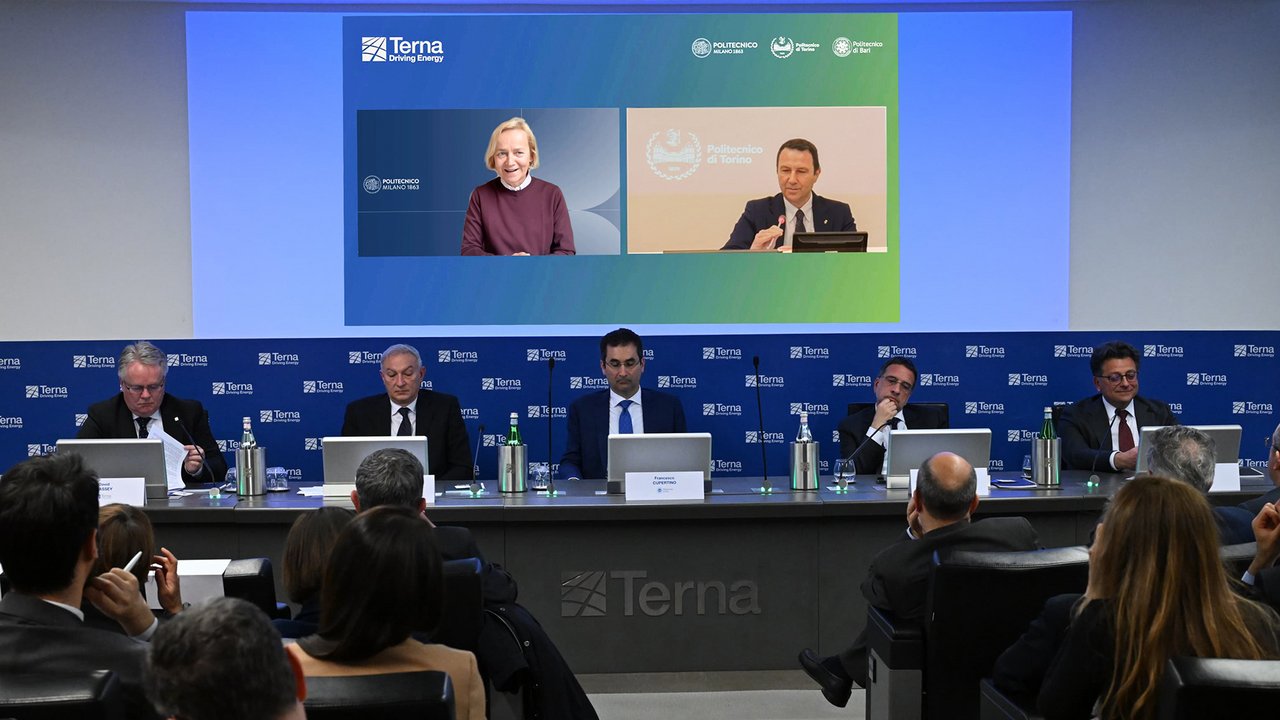High-level training for the future of the electric system
The Politecnico di Milano joins the High Competence Polytechnic Network, presented in Rome and promoted by Terna S.p.A. in collaboration with the Politecnico di Torino and Politecnico di Bari. The initiative aims to strengthen collaboration between the national electricity grid operator and the three universities to foster research, innovation, and high-level training, enhancing the security and resilience of the national electricity system.
Starting in the 2025-2026 academic year, the network will launch the first edition of the second-level Master's program in “Innovation in Electric Systems for Energy". The 12-month program will train highly specialized professionals in power systems, with 60 ECTS and a total commitment of 1,500 hours. The curriculum will include lectures by the three universities, specialized courses curated by Terna S.p.A., and hands-on experiences.
The Network's areas of collaboration include: management of zero-carbon electricity systems, automation and protection of networks, digitalization, sustainability, asset management, IT and programming.
This initiative reinforces a long-standing relationship between the Politecnico di Milano and Terna S.p.A., developed across multiple research areas, such as power systems with high renewable integration and electric grid stability. Given the profound transformation the energy sector and labor market will undergo in the coming decades, education is key to industrial competitiveness and requires joint actions that can generate real impact. This is why Terna’s initiative, connecting the three Polytechnics, paves the way for a new model of collaboration in which our University firmly believes.
Donatella Sciuto, Rector of Politecnico di Milano
Politecnico di Milano has long been involved in joint projects with Terna S.p.A. on issues related to grid stability, the integration of renewable sources and the resilience of the electricity system, contributing with its scientific and educational skills to the development of highly qualified professionals.

